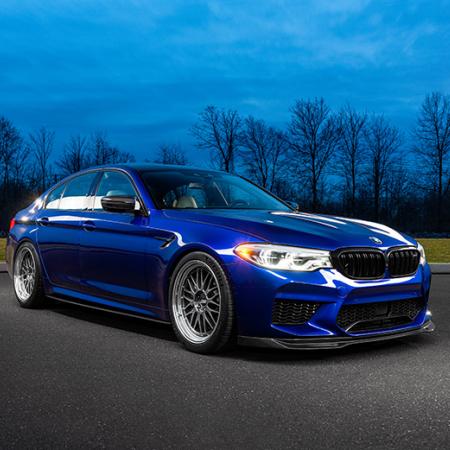BMW has delivered more than 60,000 electric vehicles so far in 2016. CEO Harald Krüger wants to bump those sales up to around 100,000 in 2017. Since the first BMW i model, the i3 electric vehicle launched in 2013, BMW has delivered about 100,000 electric cars and plug-in hybrids, so selling 100,000 in one year would be a huge jump.
“Electric mobility will come, but demand is not going through the roof at the moment,” Krüger told the German newspaper Suddeutsche Zeitung.
A number of things have changed recently that might help BMW reach their goal. First, the German government has both tax incentives and cash rebates for electric vehicles including the BMW i3, 225xe, and 330e. BMW made the i3 more attractive by introducing an upgraded battery model that has more range than the original. The company has expanded its iPerformance plug-in hybrid selection that now includes the 225xe Active Tourer (but not in the U.S.), the 330e, X5 40e, 740e, and coming in 2017, the 530e.
All-electric versions of the BMW X3 and the Mini will become available, but not for a few years.
As much as we may think that BMW is going full speed on electric mobility, not everyone agrees. Manfred Schoch is the top labor representative on BMW’s advisory board and also the deputy chairman. He thinks BMW has been dragging its feet. As reported by Bloomberg, Schoch said, “Management has been slow to decide on investing in more electric models. The carmaker must expand its range to include electric versions of its core lineup, including 3-, 5- and 7-series sedans. Anything else would be detrimental to the business."
Perhaps that’s why Krüger came out with the 100,000 goal last week. The competition is heating up, also. Volkswagen said it would come out with 30 electrified models in the next few years, although we suspect the large number is to help mollify Volkswagen’s critics and detractors following the diesel emission cheating scandal. Mercedes-Benz plans to launch ten electric models, which would close the EV gap between it and BMW if BMW isn’t more aggressive in its electric and plug-in hybrid releases.
BMW’s goal is to for its BMW i and iPerformance models to become between 10 and 25 percent of total sales by 2025. The company must figure that will be what it takes to get it’s total fleet up to the anticipated 2025 European Union emission and fuel mileage standards. Electric models now account for about 2 percent of BMW deliveries.
If BMW electric vehicles become 25 percent of total sales, and BMW X vehicles become 40 percent of total sales, as the company has indicated might happen, that means 35 percent of new BMWs could still be cars. That should be enough to keep most of us happy, provided they are still fun to drive and some of those models start with M.—Scott Blazey
[Photos courtesy of BMW AG.]
















